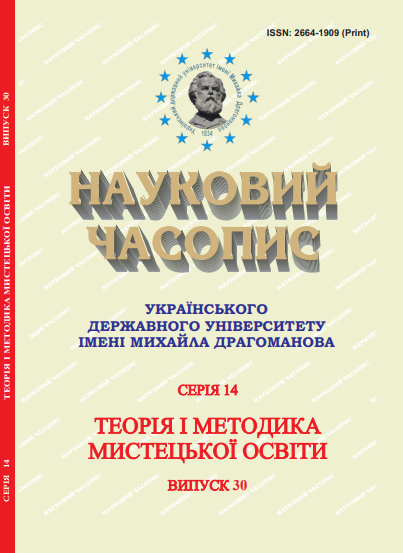Formation of executive skill of arts faculty students in the process of instrumental training: acme-hermeneutic approach
DOI:
https://doi.org/10.31392/UDU-nc.series14.2023.30.06Abstract
The article carries out a theoretical and methodological analysis of the problem of the formation of performing skills of students of art faculties in the context of the acme-hermeneutic approach. It has been found that modern polyparadigmatic pedagogical thinking makes it possible to implement in the content of higher art education along with traditional and innovative art-educational strategies for training future specialists on the basis of an integrative combination of various methodological approaches.
It is revealed that the conceptual provisions of the acme-hermeneutic approach are based on the integration and convergence of the theoretical foundations of hermeneutics as a universal theory of understanding and interpretation of artistic phenomena and acmeology as a science of the quality of creative activity on the way to students' achievement of the pinnacle of performance mastery in the process of instrumental training. The principles of interpretation of a musical work from the standpoint of hermeneutic teaching are singled out and the heuristic potential of acmeology in creative and productive musical and performing activities is determined.
Theoretically, the expediency of introducing the acme-hermeneutic approach as an innovative resource in the professional (instrumental) training of students of the faculties of arts to achieve a productive synthesis of knowledge in creative musical and performing activities has been proved.
Downloads
Published
Issue
Section
License
Copyright (c) 2024 Scientific journal of M.Dragomanov Ukrainian State University. Series 14. Theory and Methodology of Arts Education

This work is licensed under a Creative Commons Attribution-NonCommercial-ShareAlike 4.0 International License.

